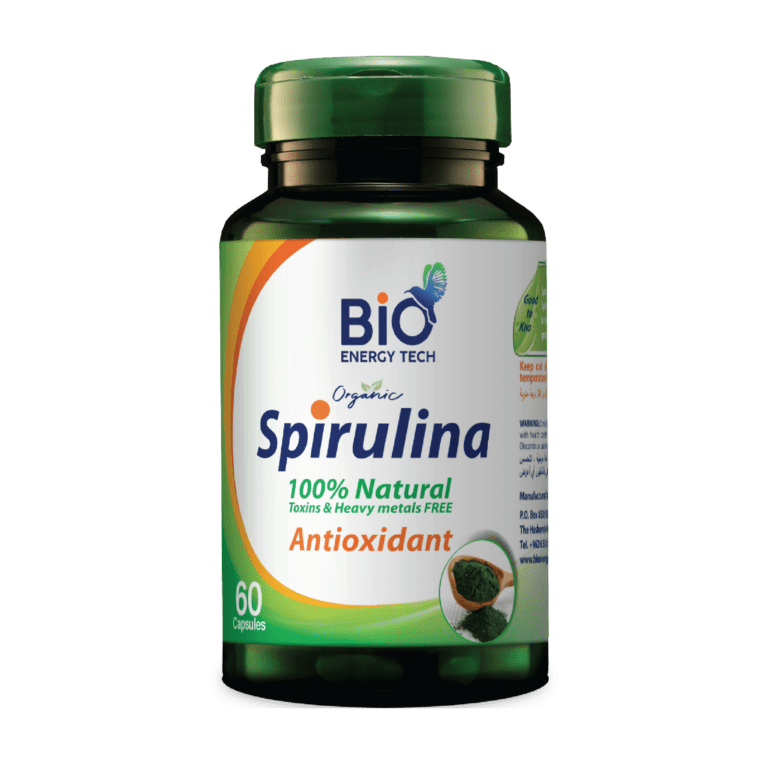Garlic is a universal plant that is cultivated in many countries. Its uses extend beyond just adding a burst of flavor to food, it is also medically used for heart and circulatory diseases (i.e. hypertension, arteriosclerosis and dyslipidemia) by its integration into medical preparations.
How Garlic Works?
Allicin; a compound in garlic, is the source of its antimicrobial properties.
Benefits of Garlic
- Garlic & Blood Clots
Atherosclerosis develops in some patients as they age. The arteries lose their flexibility, becoming more susceptible to blockage by clots.
Studies have shown that taking garlic powder for 2 years reduces atherosclerosis, especially in women, since after menopause they become more susceptible to such diseases.
- Garlic & Diabetes
Garlic helps reduce blood sugar readings, especially pre-meals. Studies have also shown that eating garlic for long periods of time, at least three months, boosts its blood sugar regulating effect. Further studies are being conducted to confirm if garlic also reduces HbA1c.
- Garlic & High Cholesterol
Studies have shown that eating garlic daily for weeks reduces cholesterol and LDL levels in the blood. However, information on whether it increases HDL is still pending.
- Garlic & Blood Pressure
Consumption of garlic showed a reduction in systolic and diastolic blood pressure readings by 8 degrees and 5 degrees; respectively.
- Garlic & Prostate Cancer
Men who eat one clove of garlic a day are 50% less likely to develop prostate cancer than men who don’t as some studies have shown. Garlic helps prevent prostate cancer or reduces symptoms associated with it. Moreover, garlic shrinks the size of the prostate gland in people with BPH (benign prostate hyperplasia).
- Garlic as an Insecticide
Daily garlic consumption made people less susceptible to insect bites than others however the reason for this is still unknown.
- Garlic & Fungi
Studies have shown that applying a gel containing a substance called Ajwain extracted from garlic twice daily for two weeks is a highly effective antifungal which treats fungal conditions such as ringworm (tinea capitis), jock itch and athlete’s foot.
- Garlic & Intestinal Pathogens
In vitro studies (laboratory studies) have shown that garlic has great properties in eliminating H.Pylori. However, studies are still being conducted to determine whether garlic is effective in eliminating H.Pylori in the human body.
- Garlic & Alopecia Areata
Studies have shown that participants with alopecia areata who applied garlic gel in addition to cortisone ointment to bald spots on the scalp improved their hair regrowth.
- Garlic & Athletic Performance
Research has shown that eating garlic increases athletic endurance. Additionally, the allicin in garlic reduces the severity of post-workout muscle soreness.
- Garlic & Colds
Several studies have shown that eating garlic in abundance protects against contracting frequent colds. Garlic also relieves the symptoms associated with colds and reduces their duration.
- Garlic & Lead Poisoning
Eating garlic three times daily for four weeks reduces the concentration of lead in the body in people with lead poisoning.
- Garlic & Sore Mouth
Using garlic mouthwash for about a month helps relieve and eliminate mouth ulcers and inflammation of the oral mucosa.
- Other benefits of garlic:
- Relieves oral fungal infections
- Vaginal yeast infections
- Stomach infections
- Liver infections
Side Effects of Garlic
- Garlic During Pregnancy & Lactation
Eating garlic during pregnancy or lactation is considered safe with no side effects. However, it should not be taken in high dosages.
- Garlic in Children
Garlic is safe for children to eat, unless it is taken in large amounts in medicine.
- Garlic & Bleeding Disorders
Garlic may increase blood fluidity in people with bleeding disorders.
- Garlic & Diabetes
Garlic reduces blood sugar readings, so caution must be taken while taking it along with antidiabetic medications to avoid severe hypoglycemia.
Drug Interactions with Garlic
- Garlic should not be taken with the following medications:
- Isoniazid (Nydrazid, INH), which is taken for TB, is not absorbed efficiently when taken with garlic.
- AIDS Drugs (Non-Nucleoside Reverse Transcriptase Inhibitors (NNRTIs): Garlic speeds up the metabolism of such drugs leading to faster elimination from the body, thus reducing their effectiveness.
- Saquinavir (Fortovase, Invirase), an antiviral.
- Take caution when the following medications are administered concomitantly with garlic:
- Garlic & Birth Control Pills (Contraceptives):
Contraceptive pills contain a hormone called estrogen. Garlic speeds up the metabolism of this hormone, thus reducing it’s efficiency. Therefore, it is recommended to use mechanical contraception (i.e. condoms) along with these pills if garlic is used.
- Cyclosporine (Neoral, Sandimmune):
This immunosuppressant is mostly used after organ transplantation such as kidney transplants. Therefore, garlic should be avoided before and after these surgeries.
- Garlic & Anticoagulants:
Garlic slows down blood clotting processes, so taking it along with such medications may increase the risk of bleeding or bruising.
Examples of such medicines are: 1. Aspirin
- Clopidogrel (Plavix)
- Diclofenac (Voltaren, Cataflam, etc)
- Ibuprofen (Advil, Motrin, etc)
- Naproxen (Anaprox, Naprosyn
- Heparin
- Warfarin (Coumadin)
- Garlic & Warfarin:
Both warfarin and garlic slow down blood clotting. Therefore, coagulation tests must be conducted and the dosage regimen may be changed based on the use of garlic. In case of concomitant use, your doctor should be informed.






